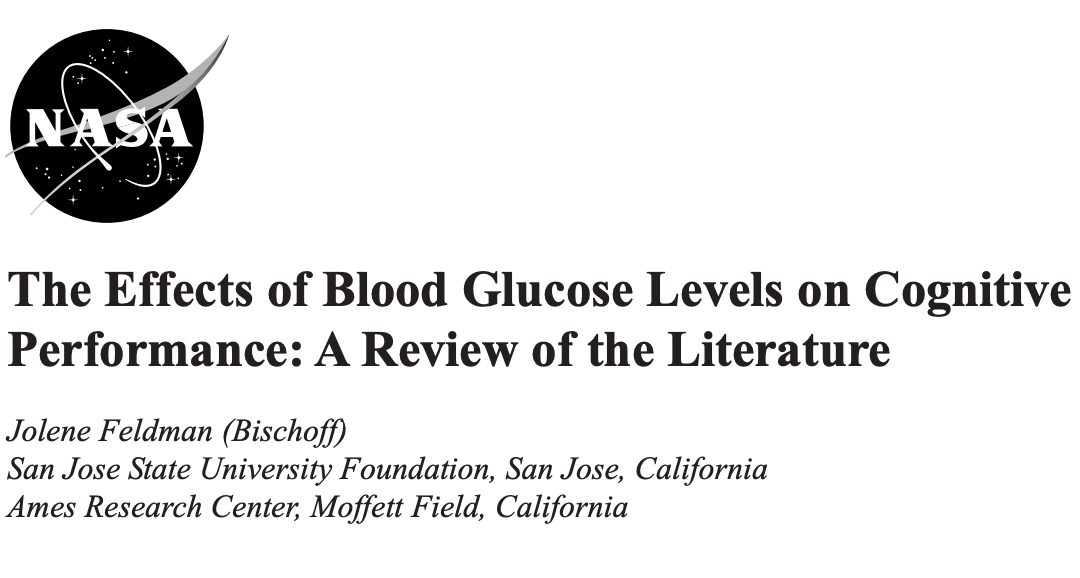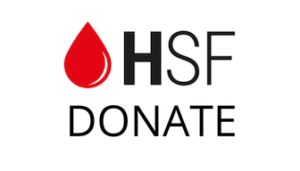From a paper by folks at NASA
The Effects of Blood Glucose Levels on Cognitive Performance: A Review of the Literature
AIM: To investigate whether perceptions of task difficulty on neuropsychological tests predicted academic achievement after controlling for glucose levels and depression.
WHAT IS BLOOD GLUCOSE?
Blood glucose, or blood sugar, is sugar in the bloodstream that easily passes the blood-brain barrier. The regulation of blood glucose involves the pancreas, liver, brain, and several hormones. Glucose is a simple sugar, which is an immediate source of energy for cells. Our brain uses a large amount of energy, and is dependent on blood glucose as its source of energy. The primary source of glucose is carbohydrates or starches and sugars, and consumption of these carbohydrates affects the rise and/or fall of blood glucose levels. Normal blood glucose levels in healthy (non-diabetic) adult individuals range from 70–110 mg/dl, and up to 140 mg/dl after meals. Consumption and digestion of all foods containing carbohydrates will raise blood glucose levels; however, some foods will raise levels at different rates than others. Because the brain cannot store glucose, it requires a continuous supply of glucose to function properly. Any shortage in this availability of glucose to the brain has adverse consequences for its functioning.
Reduced blood sugar level, or hypoglycemia, is “an abnormally low plasma glucose level that leads to symptoms of sympathetic nervous system stimulation or of central nervous system dysfunction” (Merck & Co., 2001). Hypoglycemia has been found to induce adrenergic symptoms such as nervousness and tremor as wells as central nervous system symptoms such as tiredness, confusion, and slowed mental function (Lincoln & Eaddy, 2001). Hypoglycemia occurs when glucose is released into the bloodstream more slowly than needed, when body glucose is used up too rapidly, or when excessive insulin is released into the bloodstream. The first signs and symptoms of low blood sugar can begin to occur below 70 mg/dl, although this varies from individual to individual. Hypoglycemia’s effects on the central nervous system also include symptoms like deficiencies in coordination, headaches, blurred vision, anxiety, and dizziness (Field, 1989). Normal glucose regulation varies throughout the day. Circadian rhythms, time of day, and glucose tolerance have been reported to be associated with varied blood glucose levels. In some cases, performance has deteriorated only on certain tasks (e.g., sustained attention task) and glucose tolerance was worse in the afternoon, rather than in the morning.




Recent Comments